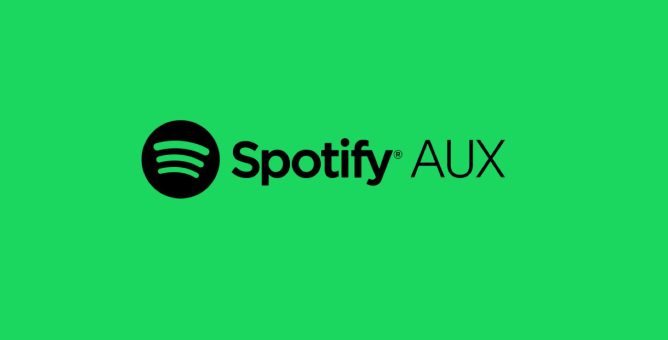The Rise of Music advisory agencies in the era of streaming
Facebook, Instagram, Snap, and YouTube have long been at the forefront of connecting creators with brands through various partnerships. Now, Spotify has joined this trend by launching its own in-house ‘music advisory agency,’ known as AUX ( pronounced "aux"). While Spotify’s program may not function exactly like a creator marketplace, it serves a similar purpose: facilitating connections between brands and emerging artists to benefit both parties.
For Spotify, AUX represents an additional revenue stream for the platform. The consultancy has already begun taking its first client, with Coca-Cola teaming up with Berlin-based DJ, producer, singer, and songwriter Peggy Gou. This long-term partnership will include live concerts, events, social media content, a dedicated Spotify channel, and other integrated marketing efforts. These initiatives aim to elevate Peggy Gou’s music career within the context of Coca-Cola’s global brand strategy.
The launch of AUX comes at a time when Spotify has been exploring various revenue models beyond its subscription service. Earlier this year, the platform introduced a new model that included a $150 million upfront payment for every song recorded by artists signed to the label. This change, while popular among record labels, has faced criticism from independent artists and smaller labels who feel it favors major labels at the expense of smaller talent.
In response to these criticisms, Spotify has taken proactive steps to address the concerns raised about its revenue model. The launch of AUX is seen as a strategic move to balance its monetization strategy with artist support, ensuring that emerging artists can thrive in an increasingly competitive market.
How does Spotify’s AUX differ from other creator-brands partnerships?
Spotify’s approach to integrating music and brand collaborations is rooted in its long-standing commitment to artist empowerment. Unlike platforms like YouTube or Facebook, which often prioritize the creator’s experience, Spotify has always placed a strong emphasis on the artist’s role within its ecosystem. This focus is reflected in the new AUX program, which aims to create a seamless experience for both artists and brands.
The program offers a range of services tailored to artists’ needs, including access to Spotify’s vast platform, marketing support, and the ability to integrate their music into brand campaigns. For brands, AUX provides a unique opportunity to connect with high-quality artists who are already part of Spotify’s ecosystem, increasing the likelihood of long-term engagement.
The challenges artists face today
Despite the potential benefits, artists operating in the Spotify ecosystem face significant challenges when it comes to earning revenue from their music. Traditional revenue models have often prioritized convenience for labels and record companies over supporting independent artists or smaller labels. This has left many artists struggling to make a living from their music while also competing with larger labels that have greater financial resources.
Spotify’s payment model, which was rolled out earlier this year, is designed to address some of these issues by providing a predictable income stream for label- and studio-backed artists. However, the model has been met with criticism, as it places an unfair burden on independent artists who are already struggling to make ends meet.
With AUX in place, Spotify aims to offer a more equitable solution for artists while maintaining its focus on creating value for labels and brands. The partnership with Coca-Cola is a prime example of how Spotify’s new model can help both parties succeed. By bringing together a world-class artist like Peggy Gou and a renowned brand like Coca-Cola, Spotify demonstrates the potential for meaningful collaboration within its ecosystem.
Spotify’s strategy: Balancing artist support and brand opportunities
Spotify’s decision to launch AUX is part of a broader strategy to reposition itself as a platform that supports both independent artists and established labels. The new program reflects the company’s commitment to creating a more inclusive music ecosystem, where artists can thrive while brands have access to high-quality talent.
In its current state, AUX allows artists to earn revenue directly through Spotify, bypassing intermediaries like record labels or distribution platforms. This direct revenue path is particularly appealing to independent artists who may otherwise struggle to make ends meet in the ever-changing music industry.
For brands, AUX provides a unique opportunity to collaborate with an artist whose music has already been consumed and appreciated by millions of listeners on Spotify. The integrated marketing efforts, including live events and social media campaigns, further enhance the value proposition for brands looking to engage with high-quality artists.
The future of music partnerships
Spotify’s launch of AUX is part of a larger trend in the music industry towards greater collaboration between artists and brands. While other platforms have already made strides in this direction, Spotify’s decision to create its own advisory agency highlights its commitment to leading the charge in creating a more equitable and mutually beneficial ecosystem for all stakeholders involved.
As more platforms explore innovative ways to support artists while simultaneously meeting the demands of modern consumers, it will be interesting to see how Spotify’s model holds up over time. For now, the partnership with Coca-Cola serves as a proof-of-concept, demonstrating the potential for meaningful collaboration in an increasingly competitive market.
In conclusion, Spotify’s AUX is poised to become a cornerstone of its strategy to support both artists and brands within the music ecosystem. By offering new opportunities for collaboration and addressing some of the challenges faced by independent artists, the program marks a significant step forward in the evolution of music partnerships. As the industry continues to evolve, Spotify’s approach will undoubtedly serve as a benchmark for others to follow.
